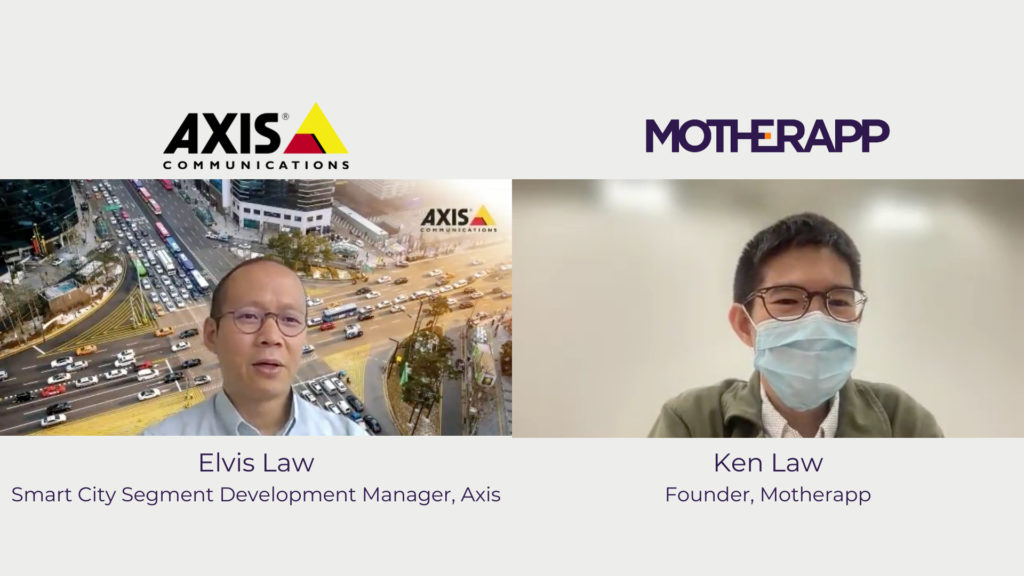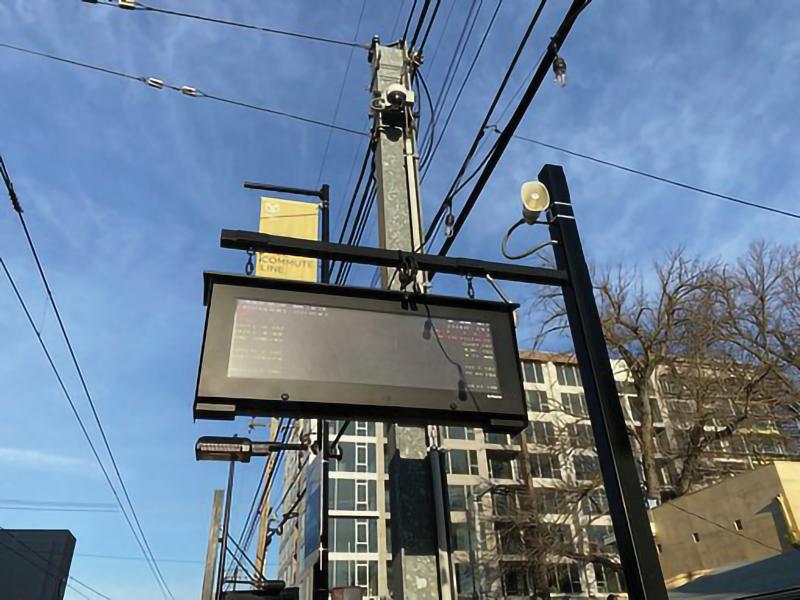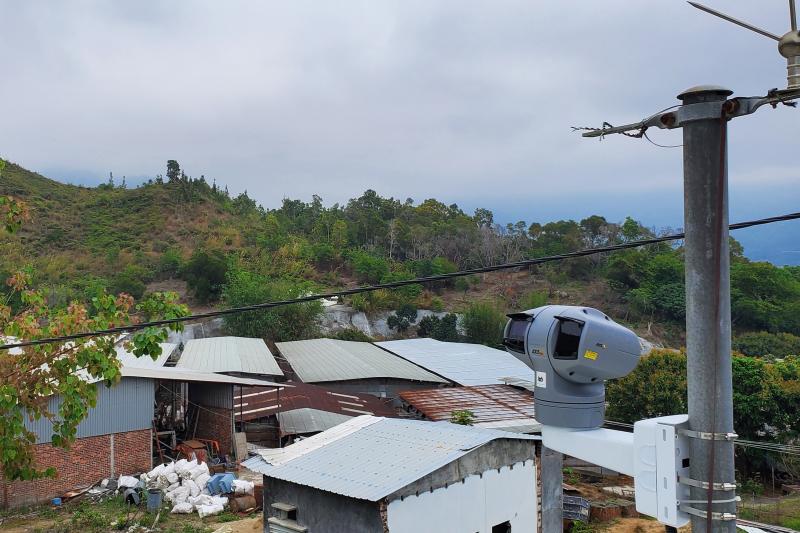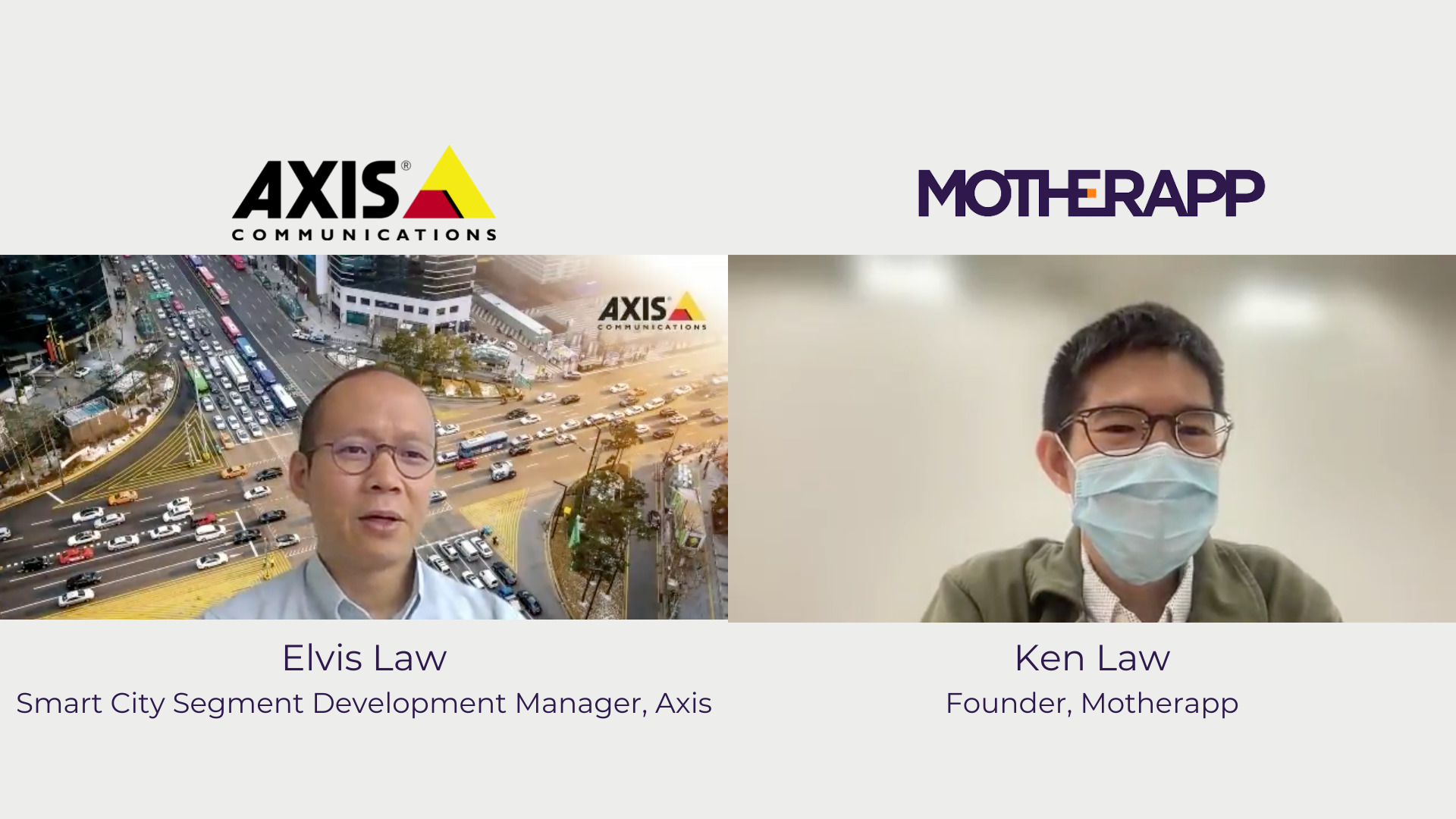You might have heard of the term “smart city” but you are probably not so familiar with what that really is. Axis is a technology company originally founded in Sweden, its business is mainly about the development of surveillance cameras and sensors. It is our honor to invite Elvis Law, the Smart City Segment Development Project Manager of Asia Pacific from Axis, to share his valuable views about the topic of smart city development.

1. How do the cameras of Axis relate to smart city development?
The concept of “smart city” has in fact evolved from the concept of “city surveillance”. The development of a smart city always involves using different kinds of cameras and sensors, to capture the city environment, the changes in time, and the development of a city. The data acquired may help the decision-makers to compose suitable laws and policies, in order to make the city more livable.
Apart from the traditional city surveillance, the authorities might also need to apply computer vision technology to the system, to develop a smart city. Computer vision helps analyze the pictures captured by the computer, and relevant units will be informed immediately when the computer recognizes something is going on. Automation improves the efficiency of surveillance, the citizens may enjoy a more convenient and safer life thanks to the advanced technologies.
Hereby, Axis acts as a related technology provider, its cameras are the platforms allowing engineers to apply computer vision analysis to city surveillance, solving different kinds of problems that the city is facing.
2. Different governments are actively promoting smart city development, what are the most common applications of it?
There are mainly three types of applications.
Public safety
Maintaining public safety is one of the most important objectives of a government. With the help of technology, governments can detect accidents or crimes more effectively, and react promptly. For example:
- Crowd Management: To prevent the risk of overcrowding, the 24/7 working surveillance cameras analyze the captured photos with computer vision, and notify the related service units, so that regular patrolling manpower can be reduced.
- Crime Prevention: Apart from visual detection, specific voices can also be recognized via the cameras when accidents happen. For some overseas countries, a noise detector will be attached to the surveillance cameras to detect if there are sounds like gunshots or screaming. Once the sounds are detected, the system will immediately notify the police force or the rescue team with real-time images and location, so that the relevant teams can take corresponding actions.
Smart Mobility
In terms of traveling, it is important for a city to develop a convenient, safe, and effective transporting network. Smart mobility helped us to enhance the transportation efficiency and safety of the city.
- For highways: cameras are installed nearby the highroads and they can automatically detect the car flow and accident. The real-time information will be sent to the relevant department and the road users so that arrangements can be made to avoid traffic jams.
- For boulevard and traffic lights: optical and thermal sensors installed nearby the traffic lights may detect the real-time passenger amount, the artificial intelligence may determine the real-time traffic lights signal, avoiding the situation of unnecessary or over waiting. The mentioned cameras can also detect the behaviors of passengers, to see if they violated the traffic rules such as running a red light, illegal parking, and so on.

Environmental Monitoring
Smart city development can also help tackle environmental problems.
- For natural disasters: Overseas countries applied smart city technologies to deal with natural disasters, such as using sensors. The sensors and cameras may detect the real-time changes of the environment, the system will automatically alert the public through network speakers when disasters (such as earthquakes, tornados, or typhoons) are about to happen, so that the general public can be well prepared for what’s going to happen. Macau is one of the good examples.
- Detecting polluting behavior: Some enterprises or individuals may illegally discard objects on the street or on idle land. The unprocessed wastes may block the road, affect environmental hygiene, or even pollute the soil and water, causing irreversible damage to the environment. Using the network cameras and the computer vision technology, the environment bureau may detect the mentioned illegal dumping behaviors, so as to press charges on the involving individuals or companies.

Image Sources: HKBWS
3. What are some advantages and good work of smart city development in Hong Kong?
Smart city technologies are successfully applied to various aspects in Hong Kong:
- In terms of public safety, Hong Kong has always been a secured city, its serious crime rate is comparatively lower than other countries. Yet, we can apply smart city technologies to:
-
- Public order: such as illegal feeding wild animals or illegal dumping. Like what we’ve mentioned above, computer vision and surveillance cameras can be used together and assist the monitoring of illegal behaviors, to ensure public order.
-
- In terms of smart mobility, the government is now launching the renewing construction of surveillance cameras in highways and tunnels. Besides upgrading the lenses, the government collaborated with different technology providers, continuously applying computer vision and other smart technologies to the traffic network, so as to gather more useful traffic data, enhance traffic efficiency.
- As for the environment, although natural disasters are rare to witness in Hong Kong, we can still apply smart city technology to:
-
- Fire detection: especially during the Ching Ming Festival and dry weather, a wildfire may happen in the rural area in Hong Kong. Through network cameras and computer vision, flames and fire can be recognized, the risks of wildfire can also be estimated. If any fires are detected and there is a high risk of wildfire occurring, the fire services department and the residents nearby will be informed, so that personal and asset safety can be ensured during the wildfire incident.
- Wild animal detection: it is not unusual that wild animals may intrude into the city from time to time. Earlier this year, a boar aboard the MTR became the talk of the town. If we make great use of network cameras and computer vision, we can then track the boars down and send them back to the countryside.
-

4. What are the things that Hong Kong needs to improve?
Nowadays, there are still a lot of arguments about privacy issues when it comes to the use of computer vision, leading to the hesitations of the developers and the cancellation of projects.
To strike a balance between personal privacy and smart city development, the government plays a very important role. As the one who establishes policies, it is important to listen to the voice of citizens if there are a lot of concerns and dissenting opinions. If the government chooses to avoid facing the problem, the development of smart city in Hong Kong will be hindered, Hong Kong might be left behind by other countries. Transparency, active consultation, and communication are the keys to gain trust from the citizens, and the cure of the problem that we are facing. Also, through the network camera and the Privacy Mask artificial intelligence of Axis, the privacy of general public can be effectively ensured.
5. There is no gainsaying that smart cities will be a big trend in the future, is there anything to bear in mind when designing or implementing a smart city project?
There are some common features of the previous successful smart city project teams.
First, they all have clear, rational, and realistic considerations, expectations, and enough knowledge towards the applying technology. Although the technology of artificial intelligence keeps advancing, there is still a long way to go before we obtain perfection and be truly “smart”. For example, when it comes to handling sophistical information, the accuracy of artificial intelligence might not be as high as humans. An Overly idealistic goal will only hinder the whole project, increasing the time and social costs. It is over optimistic to aim for 100% accuracy because it takes time for the computer vision AI to learn and practice. To run a down-to-earth project, the team has to be familiar with the involved technology, so that a reasonable goal can be set. Although the management of the project’s time, cost, and monitoring are important, but if we can consider more about the latest technology, as well as improving the communication among the technical team, the completeness of the whole project will be higher.
Second, since smart city development is a long-term project with wide coverage, it is important to ensure the quality of work. If we always seek the lowest setup cost when we are launching the AI visual analytic projects, the quality and performance of work may not meet the standard, and the maintenance expense in the future will be very high. Except for the basic hardware like lenses and sensors, the infrastructure like internet service, and the security concerns like software backdoor and camera protection, are all the elements that affect the quality of work. A long-term vision may let the team focus on the quality of the whole project, so as to develop a sustainable and scalable smart city project, which is renewable in the future.
6. Do you have any expectations or hopes for smartcity development?
From the upgrade of cameras and sensors to the enhancement of artificial intelligence and computer vision, smart cities are developing unstoppably. For example, the existing graphics processing units are installed in some surveillance cameras now. In the future, a metadata system for closed-circuit lenses will be developed by Axis. There will be no need to connect the other analytical computer, the camera itself is already a strong, powerful computer vision platform, processing different types of graphics and data which can be directly used by the application developer. Since the image edge analytic function of cameras keeps advancing, more computer vision system providers will make great use of this trend and develop more versatile smart city solutions, rapidly turning Hong Kong into a smarter city.
